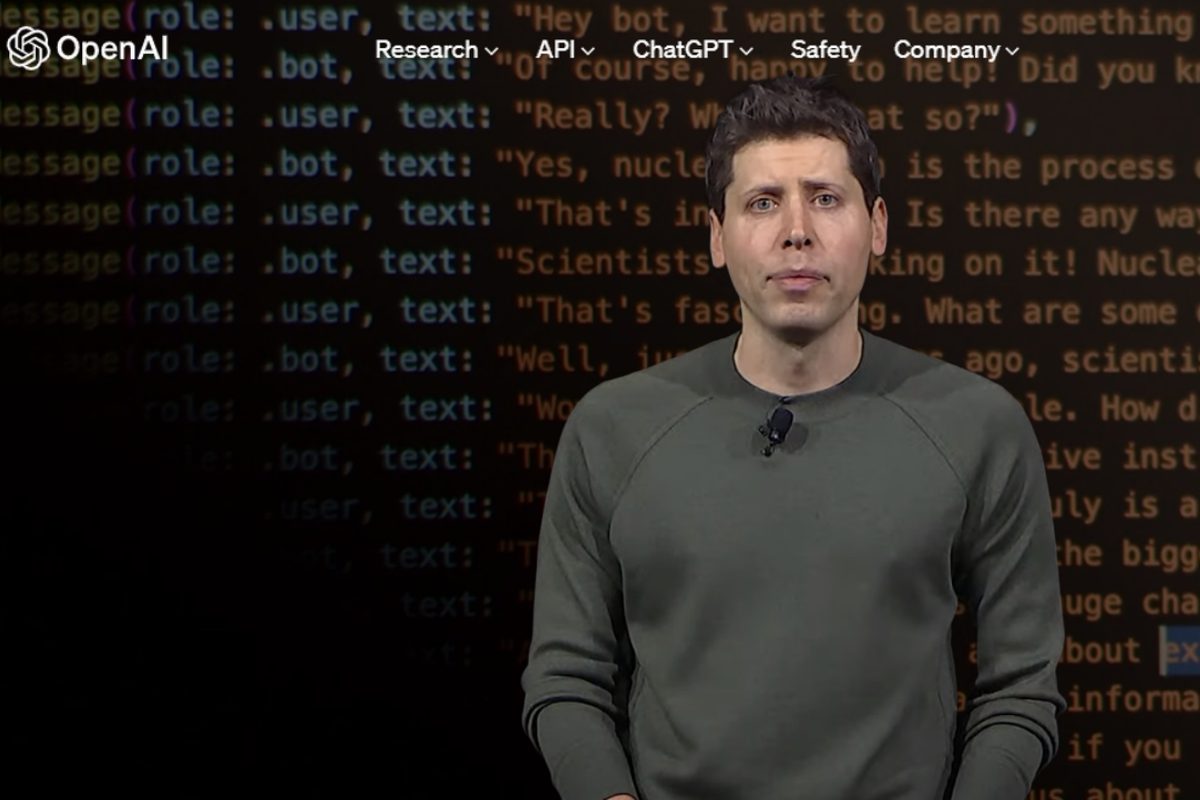In a remarkable turn of events, Sam Altman is set to resume his role as CEO of OpenAI, the leading AI startup in the U.S. This decision comes after a week of intense negotiations and internal debates, following Altman’s unexpected ouster from the company he helped to establish.
We have reached an agreement in principle for Sam Altman to return to OpenAI as CEO with a new initial board of Bret Taylor (Chair), Larry Summers, and Adam D'Angelo.
— OpenAI (@OpenAI) November 22, 2023
We are collaborating to figure out the details. Thank you so much for your patience through this.
OpenAI, renowned for its market-leading position, announced on Wednesday that it had reached a tentative agreement for Altman’s return. Additionally, the company is undergoing a significant board reshuffle, removing several members whose recent decisions had come under heavy criticism.
The revamped board will include notable figures such as Bret Taylor, former co-CEO of Salesforce, Larry Summers, ex-U.S. Treasury Secretary, and Adam D’Angelo, the founder of Quora. Taylor is set to chair the new board.
Microsoft, a major investor in OpenAI with an investment exceeding $11 billion and approximately a 49% stake, reacted promptly to OpenAI’s decision last week. The tech giant quickly appointed Altman to head a new AI division. Following Altman’s initial dismissal, Greg Brockman, OpenAI’s former President, and numerous other team members resigned in protest. However, Brockman, who had also joined Microsoft, announced his return to OpenAI.
Altman, commenting on the developments, expressed his dedication to OpenAI and its mission. He acknowledged that joining Microsoft seemed the best option initially, but with the support of Microsoft CEO Satya Nadella and the new board, he is enthusiastic about returning to OpenAI and strengthening their partnership with Microsoft.
Nadella, expressing his optimism about the recent changes at OpenAI, emphasized the importance of stable and effective governance for the future of the company. He highlighted the crucial roles Altman and Brockman will play, in collaboration with the OpenAI leadership, in driving the company forward.
Earlier in the week, Nadella had indicated on television that Microsoft’s support for Altman and Brockman would persist regardless of their positions. He also hinted at the possibility of their return to OpenAI, underscoring Microsoft’s ongoing commitment to the startup. This partnership has not only advanced Microsoft’s AI capabilities but has also positively impacted its market position and reputation.
At the end of the day, the greatest privilege of my job is working with people who are driven by mission. These last 5 days, I saw people across OpenAI remaining calm and resolute in driving their mission despite all that was happening around them. And I saw people across…
— Satya Nadella (@satyanadella) November 22, 2023
OpenAI has rapidly become a front-runner in the AI industry and a pivotal platform for numerous startups building on its technology. This influence has significantly boosted Microsoft’s AI initiatives, attracting numerous businesses and bolstering investor confidence.
The former board of OpenAI, which included key figures like chief scientist Ilya Sutskever and others, faced public backlash for their abrupt decision-making, lacking a detailed explanation. This led to frustrations among OpenAI investors, with some considering legal action against the board members, as reported by Reuters.
Joshua Kushner, the founder of Thrive Capital and an OpenAI backer, lauded the potential of OpenAI under Altman and Brockman’s leadership, celebrating their return. Emmett Shear, former Twitch CEO who briefly led OpenAI, also expressed satisfaction with the resolution.
This development marks a significant chapter in OpenAI’s history, signifying a renewed focus on leadership and governance as the company continues to shape the future of AI.
i love openai, and everything i’ve done over the past few days has been in service of keeping this team and its mission together. when i decided to join msft on sun evening, it was clear that was the best path for me and the team. with the new board and w satya’s support, i’m…
— Sam Altman (@sama) November 22, 2023
Opinion: The Implications of Sam Altman’s Return to OpenAI
The reinstatement of Sam Altman as CEO of OpenAI is not just a dramatic corporate pivot but a significant moment in the AI industry. Altman’s return could signal a renewed focus on OpenAI’s original vision and ethos, possibly steering the company back to its foundational principles. With Altman at the helm, OpenAI might intensify its efforts in ethical AI development, ensuring that their advancements align with broader societal and ethical considerations.
The reshuffling of the board, including the induction of Bret Taylor, Larry Summers, and Adam D’Angelo, is equally noteworthy. This move potentially brings diverse perspectives and expertise, which could drive more balanced and holistic decision-making at OpenAI. Taylor’s leadership as the board chair might infuse a fresh strategic approach, possibly influencing OpenAI’s future direction in the competitive AI landscape.
The return of Greg Brockman alongside Altman is equally pivotal. Their combined leadership and vision were instrumental in establishing OpenAI’s reputation. Their comeback might restore confidence among employees and partners, possibly leading to renewed innovation and growth.
However, this leadership reversal also raises questions about governance and decision-making processes within high-profile startups like OpenAI. The circumstances leading to Altman’s initial dismissal and the subsequent about-turn could indicate underlying challenges in corporate governance and stakeholder alignment. How OpenAI navigates these challenges will be critical to its future stability and success.
In conclusion, Altman’s return could mark a new chapter for OpenAI, potentially influencing the AI industry’s trajectory. It remains to be seen how this will play out in an increasingly competitive and fast-evolving AI landscape.
Article Source: TechCrunch.









